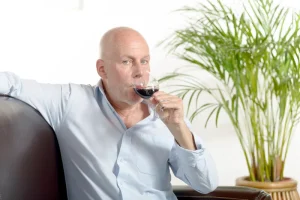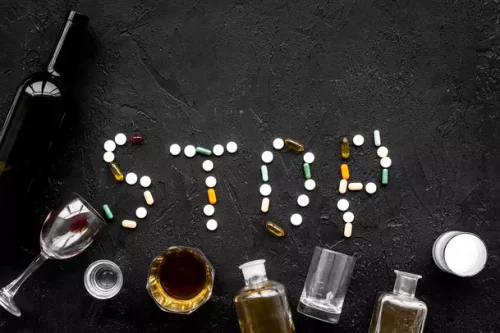How to Stay Sober Without AA: Tips and Tricks for a Successful Recovery

It’s a science-backed approach to treatment, and an empowering, modern way to quit drinking without AA. HAMS is a peer-led group that provides support and information to those who want to change their drinking habits. It’s an AA alternative that involves 17 steps instead of 12, and supports moderate drinking and harm reduction in addition to full sobriety. Medication-assisted treatment (MAT) is a treatment method that uses medication to help individuals manage their substance use disorder. MAT is often used in conjunction with other treatment methods, such as counseling and therapy. This may include connecting with friends and family, joining a sober living community, or attending support groups that align with your personal values and beliefs.
Find a recovery community
An important part of recovery is addressing these issues and setting boundaries. For those struggling with drug or alcohol abuse, AA and its sister groups are some of the most popular programs for getting sober. Sharing personal experiences with addiction recovery can be a powerful tool for inspiring and supporting others on their own recovery journey.

Rehabilitation Centers

Regular exercise, including aerobic exercises, mind-body exercises, and strength training can help reduce stress and cravings for alcohol. Journaling is also an effective tool to maintain focus during emotionally challenging periods by recording daily reflections, coping strategies, and purposeful gratitude lists. Incorporating these self-help strategies alongside professional guidance enhances chances of successful rehabilitation from addiction while promoting overall well-being beyond just abstinence from alcohol consumption.
- If you don’t want to quit alcohol completely, or have had too much trouble staying 100% sober in the past, harm reduction might be a helpful approach for you.
- Read on to learn how to stop drinking without AA—including the many alternatives to Alcoholics Anonymous—and how to decide which approach can help you quit drinking.
- Making healthy lifestyle changes can be an effective way to maintain Sobriety.
- A structured routine will help you achieve other goals in your life, whether they are short-term (like being on time for work) or long-term (like going back to school and changing careers).
- Gather the crew to detox and sweat it out at the many experiences and saunas at World Spa, a must-try spot that’s both massive and gorgeous.
Why You Might Benefit From an AA Alternative
Group participants share understanding, advice, and encouragement. It’s important to recognize that Alcoholics Anonymous does work for some people—and there’s nothing wrong with choosing that path if it’s a good fit. While the program’s anonymous nature makes success rates hard to track, an independent 2020 study confirmed that AA is genuinely effective in plenty of cases.1 It has a loyal following, and for good reason. There are advantages to the 12 step method, and many people experience success with it. However, Alcoholics Anonymous (AA) doesn’t mesh with everyone’s perspective and needs. Some elements of the program, including the belief in a higher power, aren’t the right fit for everyone.
- We understand the challenges of this stage of life, and our program is specifically built to serve the mid-life adult in a meaningful and individualized way.
- Along this path, I stumbled into a CASAC 350-hour training program, a twist I didn’t anticipate but welcomed like an old friend, opening the doors to becoming a substance abuse counselor in New York.
- But if you find yourself falling into previous unhealthy drinking habits, abstinence may be your better option.
- So, to see how AA stacks up against other common alcohol misuse treatments the team analyzed 27 studies on the topic, representing 10,565 study participants.
- Remember that Recovery is a journey, not a destination, and it’s okay to stumble along the way.
The course includes weekly live sessions, weekly recorded lectures, Q&A sessions, daily guided meditations, intention-setting and more. Women for Sobriety (WFS) is a program that is specifically engineered to focus on women’s treatment needs and what will best support their recovery. The groups are led by moderators and serve to promote emotional and spiritual growth free from the bounds of alcohol abuse and addiction. With a bustling online community and local meetings throughout the United States, LifeRing Secular Recovery is an alternative to traditional, spiritually based, 12-Step programs such as AA. LifeRing believes that each individual holds their own key to recovery, and it is not necessary to then place control in the hands of a spiritual being. Kali Lux is a consumer marketing leader with a focus on healthcare and wellness.
Exploring Sober Living Programs
Life is easier when you have friends who share the same perspectives and lifestyles — Loosid recognized that and created a safe space for people who want to live sober. Whitaker makes it clear that Tempest is not a replacement for a 12-step program, but she also makes it clear that Tempest is not just for those who are clinically addicted to alcohol. Tempest costs $547 for the eight-week program, so there’s definitely an out-of-pocket cost, but it may be well worth it if you’re trying to reevaluate your relationship with https://ecosoberhouse.com/ alcohol. Tempest Sobriety School is an eight-week virtual course created by founder Holly Whitaker, who struggled through a years-long phase of alcohol and drug addiction, bulimia, severe anxiety and depression. Whitaker attempted to keep her difficulties under wraps as she worked a high-profile job in health tech, but eventually it all became too much and she decided to get help. The spiritual 12-step program encourages members to admit they’ve lost power to alcohol and to turn their lives over to a higher power.
Instead, individuals are encouraged to take on their own weaknesses, learn to accept them, and move forward in recovery. SOS-supported groups are nonprofessional and offer a healthy network of individuals with the similar goal of sobriety. The group works on developing techniques to enhance this version of self instead of the addict self who has previously been in control of all decisions and led to destruction in life. Each person is encouraged to find their own method of encouraging their sober self within a LifeRing program. SMART Recovery programs offer both local in-person meetings and online support through a 24/7 chat board and daily online meetings. SMART Recovery programs avoid labels, such as “alcoholic,” and shy away from the disease model of addiction.

Can you stay sober without AA?
I wanted to learn how to quieten my mind, how to live my life free from shame and with love and self-compassion. Sitting in a room listening to sad stories, or reading a book from the 1940s, wasn’t part of my self-directed recovery and took away from my purpose in life. The traditional modalities didn’t represent that blueprint, so I moved on. What’s key to know is that there are nearly as many getting sober without aa pathways to recover as there are people. In that respect a good summary is provided by Choices in Recovery, who educate professionals and the public about the many pathways available and empowering them to choose the pathway that works for them. Seeking knowledge on use disorders also helps dispel misconceptions, fostering empathy and understanding towards those struggling with addiction.
- I went there for 3 years, and during this time, they reversed many overdoses and never lost a life.
- The program addressed my individual needs after a comprehensive assessment and tailored an individualized treatment plan.
- If the question comes from someone you know well, you may want to say that drugs or alcohol became a problem for you, so you’re staying away from them.
- One way to do this is to practice mindfulness, which can help you stay present and aware of your thoughts and feelings.
- No, there are numerous alternatives to AA including self-help approaches, professional counseling, and medication-assisted treatment.
- Moderation Management is a program that focuses on helping individuals reduce their alcohol consumption to a moderate level or quit altogether.
Take it a day at a time

What’s more, some people recover with no method at all—contrary to popular belief. A recent study examining the pathways of recovery shatters the myth that you need to maintain a program of recovery to stay sober. Acknowledging and celebrating the hard work of recovery is helpful for keeping you motivated and reminding you why you took this brave step toward sobriety in the first place.
Leave a Reply